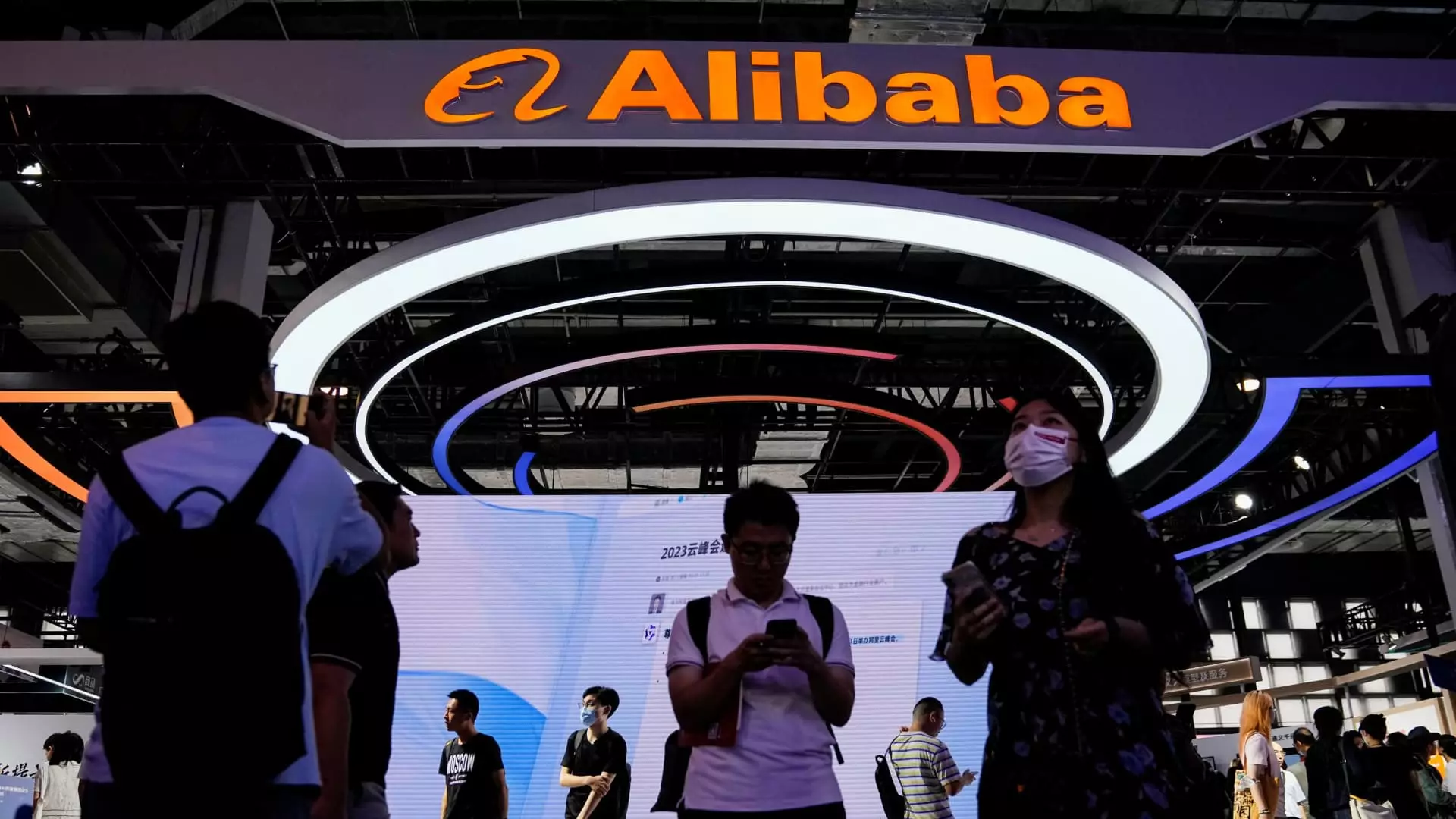The stock markets of the United States and China are on diverging trajectories that starkly illustrate the evolving economic landscape of the globe. As the S&P 500 tumbles into correction territory for the first time since the beginning of this year, the MSCI China index experiences a meteoric rise, showcasing an unprecedented start that has captured the attention of both investors and analysts. The pronounced difference in performance between these two markets signifies a crucial turning point that could reshape investor priorities and global economic dynamics. The U.S. market, once the envy of the world, appears increasingly vulnerable, while the Chinese market, bolstered by its ambitious tech sector, gains robust momentum.
The Fab Four and Their Rivals
What’s particularly captivating about the recent resurgence of Chinese stocks is the emergence of what some have billed as the “Fab Four” – Baidu, Alibaba, Tencent, and Xiaomi. Each of these companies is not merely surviving; they’re thriving, primarily powered by advancements in artificial intelligence (AI). The excitement around AI is almost palpable, as Baidu and Alibaba put forth models that challenge Western technological standards. While the approach of the “Magnificent 7” – a popular term for the leading U.S. tech stocks – is seemingly faltering, these Chinese companies are rapidly gaining ground, benefitting from a potent combination of governmental support and an expansive consumer base.
This ideological shift among investors showcases a growing suspicion towards traditional U.S. firms, illustrated by the alarming 12% decline in their stock values year-to-date. The juxtaposition of these two groups emphasizes a strategic pivot, where investors may increasingly turn to what were conventionally regarded as emerging market stocks for stability and growth. The writing is on the wall: American tech giants are at risk of becoming yesterday’s news.
Beijing’s Policy Embrace or Strategic Opportunism?
A notable aspect of this shifting tide is the increasing optimism emerging from Beijing. Analysts have observed a seismic shift in government rhetoric towards Chinese tech companies amid the surging interest in AI. This strategic embrace suggests that the Chinese government is keenly aware of the geopolitical significance of fostering an innovative tech landscape that rivals the West. The support from Beijing may not be purely altruistic; rather, it appears to be a calculated move to bolster the nation’s economic resilience in the face of mounting pressures from external sources.
This newfound favoritism might be precisely what these tech giants need to scale even greater heights. Nonetheless, skepticism remains—critically analyzing whether this level of governmental support can be sustained in the long term. The delicate interplay between state preferences and market realities will be crucial to watch, as it could lead to increased volatility and unpredictable outcomes.
The Global Investor Response
Investor sentiment is also noticeably shifting as excitement around AI intensifies. Investment in Hong Kong stocks has been surging, with record net purchases from mainland Chinese investors highlighting a robust confidence in the potential of local tech firms. This is especially evident in Alibaba and Tencent, who are perceived not only as tech powerhouses but also as signs of a broader renaissance in Chinese innovation and productivity.
On the flipside, international hedge funds have begun to show interest in this market turnaround, hinting at a possible shift in perception. As longer-term institutional investors start to take positions, the momentum could solidify, challenging the previously unassailable dominance of U.S. firms in tech. What remains uncertain is whether this interest will persist or if it is merely a reactionary surge in the wake of apparent U.S. economic frailties.
The Volatility of Consumer Confidence
Interestingly, while the Chinese stock market rises, it does so amid a backdrop marked by caution within the U.S. consumer base. The prevailing sentiment suggests that significant drops in the stock market could lead to widespread economic impacts rippling through the public’s purchasing power. With research indicating that consumers may not feel a significant effect until stocks decline by 20%, we find ourselves grappling with an unsettling reality. This detachment could spell further trouble for the U.S. economy, as consumer confidence often acts as a bellwether for broader economic health.
Investors must now approach this critical juncture with discernment. It is clear that the dynamics will continue to evolve rapidly; the challenge lies in discerning whether the long-standing advantages of U.S. stocks will disappear into thin air, replaced by a new paradigm led by their Chinese counterparts. This is a pivotal moment where one must tread carefully, as the fates of these two economic powerhouses will significantly influence the future of global finance.


Leave a Reply